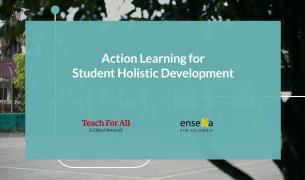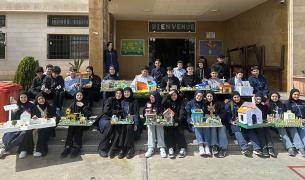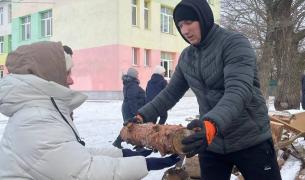Breaking stereotypes: Fostering the empowerment of girls through practical projects in Vienna

In my first year of teaching at an Austrian middle school, I was met with a profound challenge: the future career perspectives of the girls in my class seemed bleak and limited. Unlike their male counterparts, who eagerly discussed their aspirations and possibilities, the girls often appeared intimidated or resigned to traditional roles. This disparity was underscored by statements like, "It doesn't matter to me, I'll just marry someone to take care of me.” This sentiment reflected a broader issue faced by the 16,000 girls in Viennese middle schools, especially those from immigrant backgrounds who faced additional cultural and economic barriers.
Determined to change this narrative, I created Die BauBox, a project aimed at helping young women become empowered through practical, hands-on experiences that challenge stereotypes and expand their horizons. The onset of COVID-19 presented an unexpected opportunity to focus on developing the girls' mindsets and practical skills outside the constraints of traditional classroom settings.
The genesis of Die BauBox
Die BauBox was established from a desire to create a supportive environment where girls could explore their potential free from societal limitations. Our students, like many others, lacked the resources to attend after-school programs or private tutoring, often essential for broadening students' opportunities. This was particularly crucial for "my girls," primarily refugees or second-generation immigrants without German-speaking support at home.
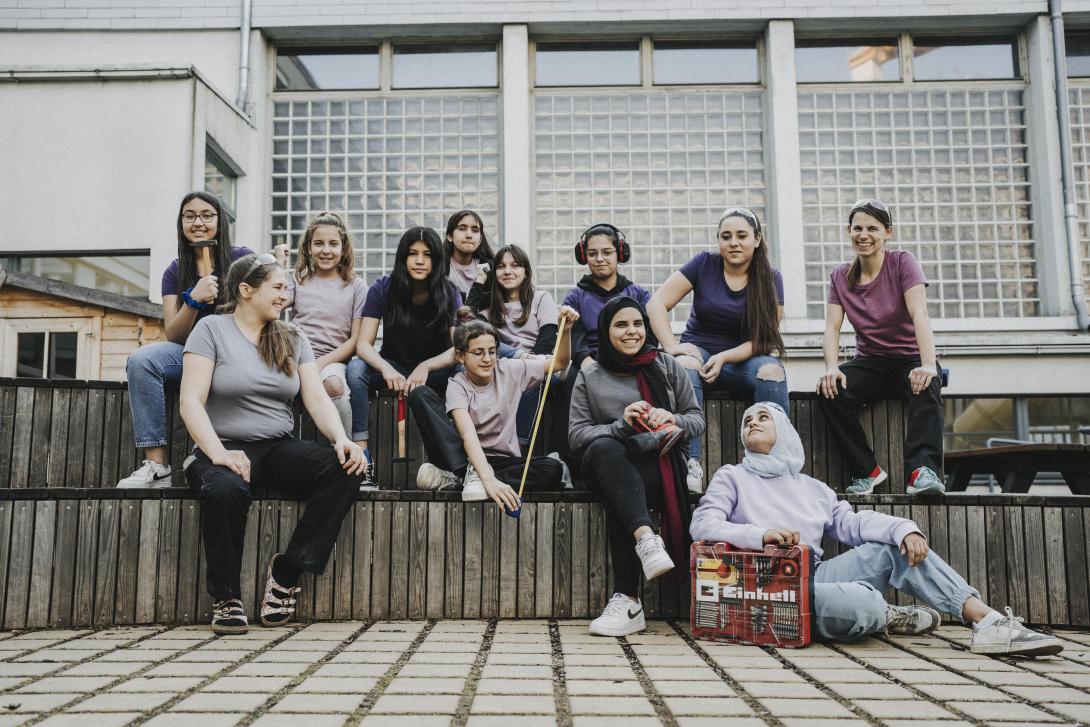
The project aimed to teach the girls how to use power tools and digital devices, introducing them to various STEAM (Science, Technology, Engineering, Arts, and Mathematics) fields. By engaging in projects like building community benches and planter boxes, the girls not only acquired technical skills but also contributed meaningfully to their communities, fostering a sense of pride and belonging. This initiative mirrored similar efforts in STEAM education, emphasizing project-based learning to make education more inclusive and impactful.
Empowerment through practical learning
Die BauBox is more than just a maker space; it is a campaign to cultivate leadership and confidence in young women. Through project-based learning, the girls tackle real-world problems, applying theoretical knowledge in practical settings. These projects require teamwork, resource management, and deadline adherence—skills that are directly transferable to the workplace. This approach is similar to initiatives where students apply mathematics to societal issues, transforming them from passive learners to active problem-solvers and community advocates.
The initiative has since expanded to three schools and includes a week-long summer program, offering even more girls the chance to participate. None of this would be possible without the support of the Viennese educational community and private funding, which also allows us to explore STEAM industries beyond Vienna, further inspiring our participants.
Community and collaboration
The success of Die BauBox hinges on collaboration. Projects such as building community benches and planter boxes have tangible benefits, broadening the girls' horizons and providing them with a sense of contributing meaningfully to their community. Many of the girls involved come from Muslim communities or have roots in the European Balkan states, and through their work, they contribute to the Viennese community—helping them to build a sense of belonging through the works they create and gift to others.
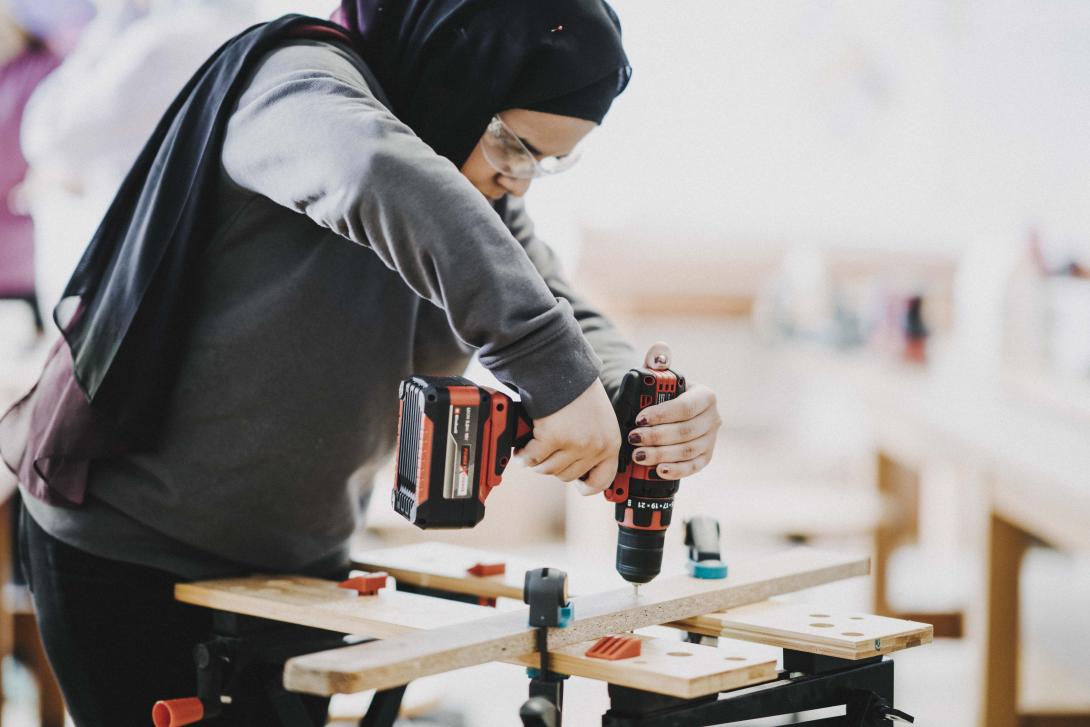
Engaging female mentors and leaders in STEAM has been particularly inspiring for the girls, helping them envision similar futures. Additionally, involving other teachers, schools, and community projects has created a network that enhances the girls' learning experiences and ensures the program's sustainability. This mirrors efforts in other educational settings where collaboration with colleagues and community leaders has been vital for success.
However, challenges remain, particularly in finding female teachers and support personnel who trust their ability to coach and support the girls. This underscores the importance of extending mindset work and skills-building approaches to teachers and mothers as well. The journey has taught me the importance of cooperation and the impact of role models in shaping young minds, echoing the experiences of educators who have faced skepticism but pressed on with the belief that every student has the potential to be a changemaker.
Looking forward
Over the past three years, I've learned the value of cooperation and the impact of role models in shaping young minds. The journey has shown me that fostering empowerment goes beyond teaching skills; it's about inspiring a new generation to imagine a world built with female contributions. By creating an environment that encourages innovation and leadership, we can challenge traditional gender norms and inspire more girls to pursue careers in STEAM fields.
As we continue to expand Die BauBox, I hope that more individuals will step forward to be the role models these girls need, helping them design and build a future without limits. The project's success has already inspired some participants to pursue vocational training in fields like metal processing and electronics, demonstrating the transformative power of practical, hands-on education. By continuing to work together as a community, we can ensure that these young women have the tools and confidence to lead and innovate in their communities and beyond.
Embarking on a new educational journey
Concluding our work in Vienna, where young women thrived through hands-on learning, I reflect on our shared journey of growth and discovery. This pursuit of inspiration and leadership now leads me to a new adventure—exploring STEAM education across Latin America. Over the next ten months, I will engage with educators, drawing insights from their practices within our global network.
This journey signifies more than professional development; it embodies a commitment to lifelong learning. By connecting with educators in Latin America, I aim to enrich our initiatives and continue supporting the empowerment of young leaders, showcasing the transformative power of education and collaborative learning.
